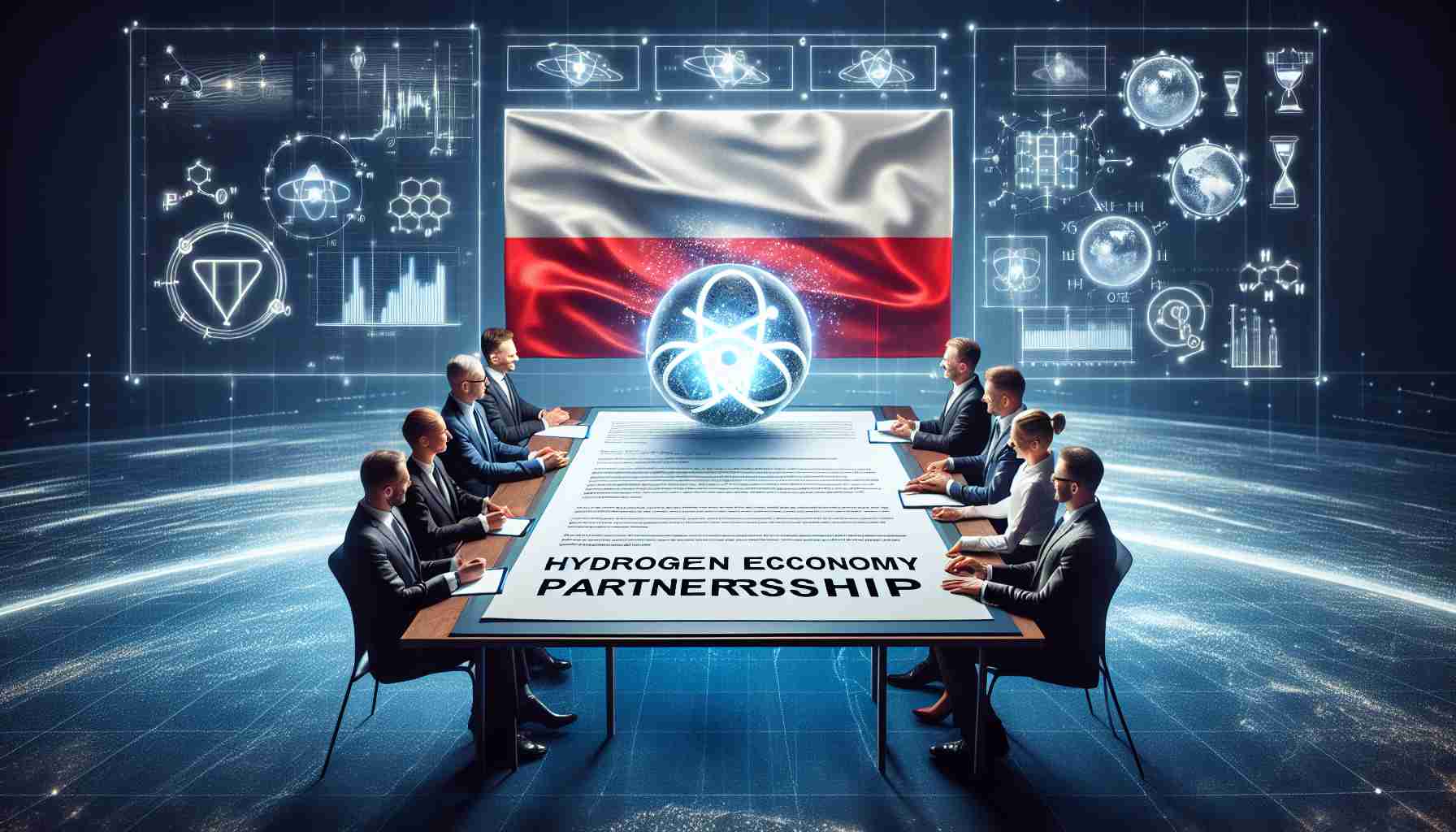Poland’s commitment to combating climate change and embracing clean energy solutions has reached new heights with the introduction of a Sectoral Agreement for the Development of the Hydrogen Economy. Led by Deputy Minister of Climate and Environment Krzysztof Bolesta, the country is positioning itself as a frontrunner in the global transition to a hydrogen-based future.
The groundbreaking meeting chaired by Deputy Minister Bolesta centered around advancing the implementation of the Sectoral Agreement. This agreement serves as a strategic roadmap for developing a sustainable hydrogen economy, encompassing various sectors such as transportation, industry, and energy production. By fostering collaboration between government entities, industry stakeholders, and research institutions, Poland aims to unlock the full potential of hydrogen as a clean and versatile energy carrier.
Rather than relying on quotes to convey the significance of this development, it is clear that Poland’s focus on the Sectoral Agreement demonstrates its dedication to realizing the potential of hydrogen as an integral part of the nation’s energy transition. By prioritizing the development of the hydrogen economy, Poland is showcasing its commitment to reducing greenhouse gas emissions, promoting technological innovation, and creating new employment opportunities.
Not only does this sector-focused approach provide a comprehensive framework for the sustainable development of the hydrogen economy, but it also highlights Poland’s determination to take the lead in this global shift towards clean energy. As the country continues to invest in research and development, infrastructure, and regulatory frameworks, it is paving the way for a hydrogen future that can have a transformative impact on various industries and power the transition towards a greener and more sustainable world.
Poland’s Sectoral Agreement for the Development of the Hydrogen Economy stands as a testament to the country’s proactive stance on climate change and commitment to building a sustainable future. By fostering collaboration, promoting innovation, and prioritizing clean energy solutions, Poland is well-positioned to not only meet its own climate goals but also inspire and drive global action towards a hydrogen-powered future.
FAQ (Frequently Asked Questions):
1. What is the Sectoral Agreement for the Development of the Hydrogen Economy in Poland?
The Sectoral Agreement is a strategic roadmap that aims to develop a sustainable hydrogen economy in Poland. It focuses on various sectors such as transportation, industry, and energy production. It is designed to foster collaboration between government entities, industry stakeholders, and research institutions to unlock the full potential of hydrogen as a clean and versatile energy carrier.
2. What is the significance of Poland’s focus on the Sectoral Agreement?
Poland’s focus on the Sectoral Agreement demonstrates its dedication to realizing the potential of hydrogen as an integral part of its energy transition. It showcases Poland’s commitment to reducing greenhouse gas emissions, promoting technological innovation, and creating new employment opportunities. It also positions Poland as a frontrunner in the global transition to a hydrogen-based future.
3. How will the development of the hydrogen economy benefit Poland?
The development of the hydrogen economy in Poland will have several benefits. It will aid in reducing greenhouse gas emissions, leading to a cleaner environment. It will also promote technological innovation and create new job opportunities. Additionally, it will position Poland as a leader in the global shift towards clean energy.
4. What sectors will be affected by the Sectoral Agreement?
The Sectoral Agreement will encompass various sectors, including transportation, industry, and energy production. It aims to develop sustainable solutions in these sectors that utilize hydrogen as a clean energy carrier.
Key Terms:
1. Hydrogen Economy: Refers to an economic system in which hydrogen is the primary energy carrier for powering various sectors, replacing traditional fossil fuels.
2. Greenhouse Gas Emissions: Refers to the release of gases, such as carbon dioxide and methane, into the atmosphere that contribute to global warming and climate change.
3. Frontrunner: Refers to a person, organization, or country that is at the forefront or leading position in a particular field or industry.
Related Links:
– Climate.gov
– United Nations Sustainable Development Goals
– European Commission – Energy
The source of the article is from the blog zaman.co.at
